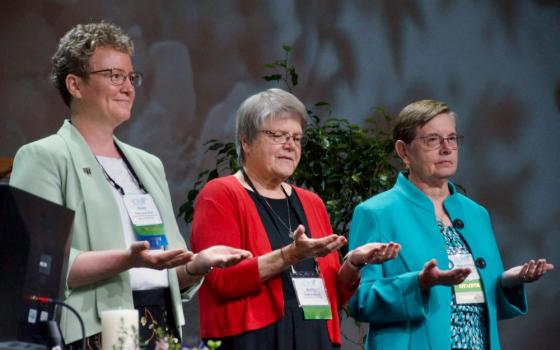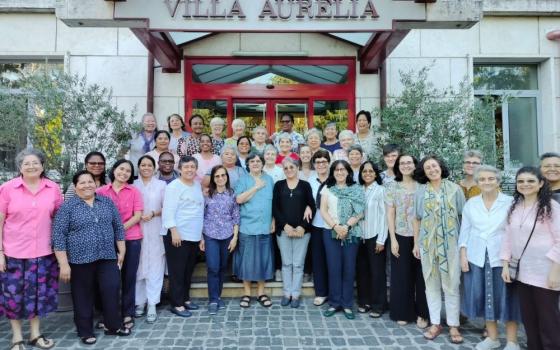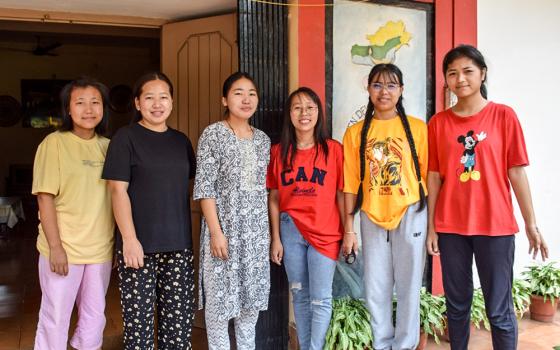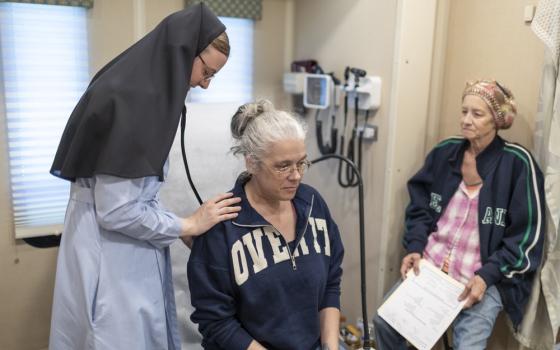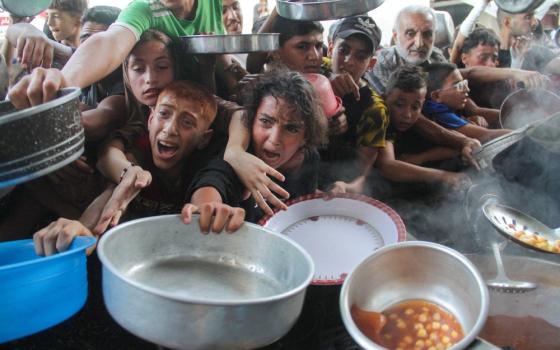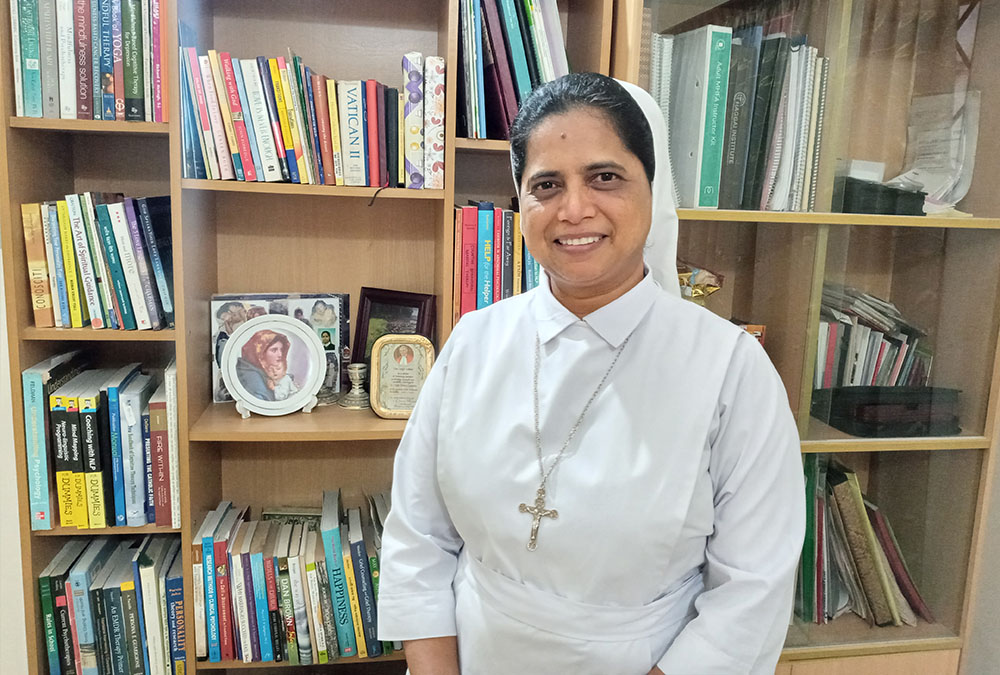
Sr. Lipy Gloria Rozario of the Sisters of Our Lady of Sorrows is the director of the Healing Heart Counseling Unit in Dhaka, Bangladesh. (Sumon Corraya)
Sr. Lipy Gloria Rozario, a member of the Sisters of Our Lady of Sorrows, has been a psychological counselor for 10 years and is the director of Healing Heart Counseling Unit in Dhaka, Bangladesh, which provides training for mental health professionals and offers counseling services.
Each year, hundreds of professionals receive training from Healing Heart Counseling Unit, which offers counseling sessions for individuals, children, couples and families who seek help for psychological, psychosocial and education issues, along with workshops and training related to psychological well-being.
For the last year, she has produced approximately 10 videos per month on Facebook and YouTube on mental health, some of which have more than 1 million views. Her videos discuss mental health problems and present solutions in under 10 minutes.
Nearly 17% of Bangladesh adults experience mental health issues, and 92.3% of those do not seek medical attention.
Rozario also has been part of the adjunct faculty in the Department of Educational and Counseling Psychology at Dhaka University since 2013.
GSR: Please tell us the story of starting the Healing Heart Counseling Unit.
Rozario: I didn't plan to create an organization. When I completed my studies and returned from [receiving my master's degree in] the United States in 2010, I searched for a job at a college but couldn't find one. At that time, I was involved with two [nongovernmental organizations that worked with children and victims of domestic violence] as a counselor. I made some connections with people. I realized I could use my skills and launched the Healing Heart Counseling Unit in 2010.
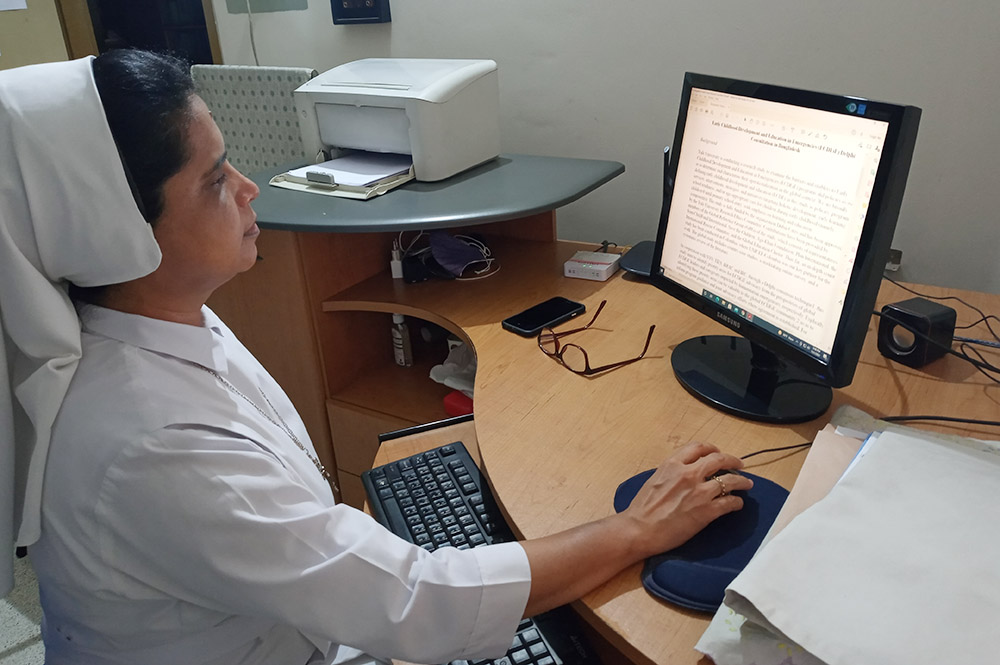
Sr. Lipy Gloria Rozario of the Sisters of Our Lady of Sorrows works in her office at the Healing Heart Counseling Unit in Dhaka, Bangladesh. (Sumon Corraya)
Since 2012, the activities of my organization have increased. Besides providing counseling, I also started providing training. I had a desire to teach counseling while I studied at university. I created an opportunity to teach by establishing this organization. University students were my first students.
In the beginning, people came to take my services through word of mouth. They obtained my services and told others, and this is how I got many other clients. Ninety-nine percent of my clients are non-Christians.
In Bangladesh, you are the first nun to serve at a public university. Please tell us about it.
As a teacher and nun, my students at Dhaka University respect me immensely. It's one of the country's best universities.
Most learners have heard that Christian teachers teach well. Some students have studied at missionary schools. That's why they know about the teaching of nuns and respect and love me. Most of the students remember me after they complete their degrees. They became thankful for my education.
I always go the extra mile for my students. My learners get better results on their exams. Since 2020, I have also served as a part-time teacher at Notre Dame University Bangladesh, which is run by Holy Cross priests.
How is the demand for training in counseling psychology in this country?
Training in counseling psychology is in demand across Bangladesh, but there is a lack of sufficient resources to provide this training. Many might obtain a degree in this subject, but they cannot become a counselor without practice in the field. If patients come to counselors with problems, they must have the capacity to solve the issues.
Many universities have departments of psychology, but they cannot make a skilled workforce. Therefore, the demand for our organization is high. Already, we have trained over 1,500 people to work as counselors. It is a big achievement for us. We are two full-time trainers, and we have two part-time trainers and 48 volunteers.
Advertisement
People have been suffering from frustration, despair, anger, hatred. Psychology has some effect on how anger and hatred can be controlled and reduced.
In the COVID-19 pandemic, people lost jobs, and many people's income declined. Many people returned to villages from cities. Their key anxiety is how they will survive. Many worried people cannot think of the second option, that without a job, they also can survive.
If they get counseling, they might think of other ways to earn money, such as creating a small business or making handicrafts.
Another anxiety is getting infected by COVID. Children are doing online classes and become addicted to the internet. Many such problems are coming. To solve these problems, counseling psychology has huge demand nowadays.
In our country, many people don't know that mental illness is a big issue. They cannot find symptoms of mental illness. People need to be made aware of mental health.
What kinds of mental problems do people face in this country?
Children face stress from their parents. Some parents are too protective. They don't value children's words and don't take opinions from kids. They behave like autocrats with children. Parents say no when their kids want to do anything.
For better grades at school, some children face pressure from their parents.
Those are adolescents; they suffer from breakup problems. Many of them think, "I am a failure, and I will kill myself." Youths are emotional — their rate of suicide is higher than people of other ages. Youths are worried about getting better jobs.
Couples face marital problems. In this modern era, many of them hide secret relationships. When the partner discovers it through social media apps such as WhatsApp or Facebook Messenger, then the relationship doesn't last.
Fourteen percent of adolescents and 16.8% of adults suffer from mental problems in Bangladesh.
Why do you use social media to share your wisdom?
In 2019, we decided to provide awareness sessions in 18 Catholic high schools in the Dhaka Archdiocese for students. Because of the COVID-19 pandemic, we couldn't continue it, so we started making video content.
Our videos are five to 10 minutes in length. We have over 76,000 followers on our Facebook page that follow our content. A few videos have been watched more than 1 million times.
Generally, in the video, a person plays a role. He or she mentions problems. I tell him or her the solution. We choose common issues that people often face.
Gradually, my audience has been increasing. On Facebook, that is mostly people ages 18 to 24. One video — "How do you say no to your boyfriend and others?" — has been watched 2.2 million times.
Many people contact me by watching my videos on Facebook and YouTube. Social media helps me promote and market my services.
How do you feel in your work as a counselor?
I feel great doing my work because I have a passion for doing it. I work more than 12 hours each day. Each day, my days end by providing counseling, training, research and writing a book. I am doing work that remains ignored or neglected in people's lives.
It is my privilege to make people aware of mental health. I obtain immense joy from my clients. As a counselor, I listen to all negative things and problems from clients. It is a very personal issue. Sometimes, it is tough and challenging for me.
From the outside, I didn't face any challenges or barriers. People appreciate my work and service. It inspires me.

